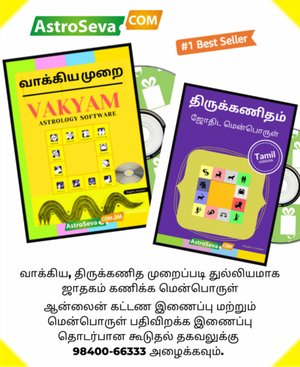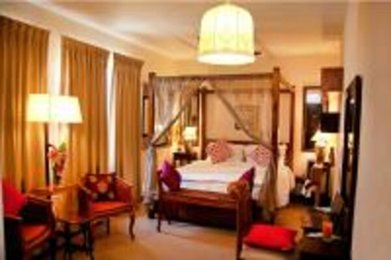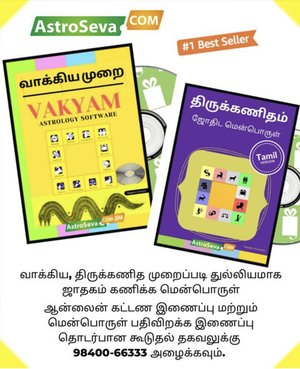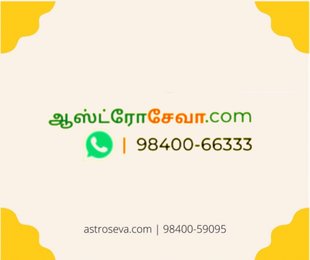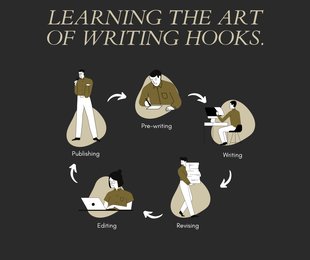STUDY ABROAD EDUCATIONAL CONSULTANTS Russian Center of Science & Culture,74, Kasturi Ranga Road, Alwarpet,Chennai, Tamil nadu,
STUDY ABROAD EDUCATIONAL CONSULTANTS
Russian Center of Science & Culture,74, Kasturi Ranga Road, Alwarpet,Chennai, Tamil nadu,
Email Address
info@studyabroadedu.com
Get in Touch
+91 9282221221
044- 24988215 | 044- 24986860 |
044-43129595
ABOUT US
STUDY ABROAD EDUCATIONAL CONSULTANTS (SAEC)
STUDY ABROAD EDUCATIONAL CONSULTANTS was founded in the year1991 with the objective of bringing together foreign Universities & Indian Students. It was incorporated as a company under the Indian Companies Act 1956.
Since its inception SAEC has successfully helped about 4000 Indian students complete their academic pursuits in their chosen profession in the Russian Federation, who are today Doctors and Engineers in various parts of the world. More than 1000 Students recruited by SAEC are currently pursuing their higher education at various leading Russian Universities. Every Year around 300 Students are admitted through SAEC.
SAEC remains involved with the students during the entire cycle of their academic pursuit starting from helping them obtain Admission offers till they receive their degrees. Solving the day today problems that may arise during the stay in Russia and making travel arrangements during holidays, is an integral part of Study Abroad’s services. As a comprehensive package of service, parents are also kept informed about the academic progress of the students every semester on a regular basis.
The Ministry of Health of the Russian Federation appointed SAEC as its Authorised Representative in 1994 to select Indian students for admissions into various medical institutions in the Russian Federation. The Ministry of Health and the Medical Industry of the Russian Federation is the supreme authority, functioning under the Russian Government and the Medical Institutions of the Russian Federation come under its jurisdiction, control and supervision.
SAEC is the exclusive preferred representative of some of the world’s leading Universities like Moscow Medical Academy, Russian State Medical University, Moscow State University & Moscow Aviation Institute to name a few. SAEC represents about 10 Medical Universities, 25 Engineering Universities of the Russian Federation.
Since 2000, for the past 20 years, SAEC has been successfully conducting educational fairs featuring many leading Universities in many metro cities of India. SAEC also invites officials from the universities and help conduct counseling and spot admissions to students, in other non-metro cities & towns. Seminars on ‘Prospects of Higher Education in Russia’ are also conducted, wherein eminent personalities from the educational field from India and Russia participate. Every year thousands of prospective students and their parents attend these exhibition and seminars and get first hand information from the University officials.
As part of reaching out to prospective candidates, Audio-visual presentations are carried out in the school and college campuses. The audio-visual presentation highlights the opportunities and advantages that are available to students to achieve their career goals. Parents are advised about the economics, terms and conditions of studying abroad and also are helped in obtaining bank loans for their children’s education.
In the pioneering service of 29 years in providing opportunities for Indian students to study in various Universities in Russia, SAEC has helped Universities market their Knowledge resources and infrastructure in India most effectively.
MEDICAL
About Immanuel Kant Baltic Federal University
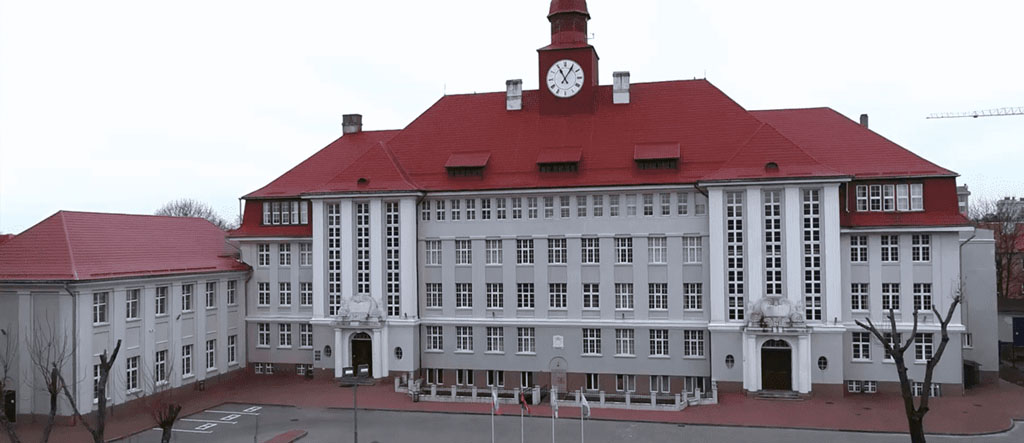
KALININGRAD
IKBFU is located in the westernmost region of Russia, Kaliningrad. Kaliningrad is indeed a unique place due to various reasons: - the city of Kaliningrad used to be a german city called Konigsberg, so the architecture of Kaliningrad is a mixture of both old German and modern Russian style - It is separated from the rest of the Russian Federation and takes its place in eastern Europe, between two countries: Poland and Lithuania, just by the Baltic Sea.
IKBFU Today
IKBFU was established in 1947 Gained status of a Federal university in 2010.
One out of 10 Federal universities in Russia
One out of 21 universities of excellence in Russia
Largest university in the Kaliningrad region
Total amount of students: 14,000 (with 7892 studying
within full-time programmes)
800+ international students from 46 countries
Academic staff: 776
INSTITUTE OF MEDICINE
Established in 2006 1726 students study at the Institute of Medicine at the moment
These students are from 31 countries and 20 regions of Russia
Competition to enter the Institute of Medicine:
26.4 applicants for 1 student’s position
GENERAL MEDICINE:
The degree programme focuses on the study of biological processes in the human body, disease mechanisms, prevention measures, treatment, and strategies of medical assistance to the patient. The graduates can be employed in various healthcare institutions.
The goal of the programme is to Provide clinical skills and knowledge necessary to care for patients and their families, to train highly qualified professionals who can compete in the market of medical services. Benefits of the programme: The Institute of Medicine has a modern research and educational infrastructure: the anatomy centre, simulation clinic, accreditation centre, clinical and diagnostic centre, classrooms with 3-D screens.
• Duration of the Programme - 6 years
• Programme type – Fulltime
• Language of instruction - English
CORE COURSES:
History, physics, foreign language, propaedeutics of internal diseases, bioethics, mathematics, psychology and pedagogy, intermediate level therapy, work-related diseases, history of medicine, chemistry, Latin, advanced therapy, endocricnology, law, IT in medicine, biology, therapy for out-patients, philosophy, biochemistry, anatomy, neurology, neurosurgery, economics, microbiology, virusology, histology, embryology, citology, dermatovenerology, immunology, regular phisiology, psychiatrics, medical psychology, pathological anatomy, clinical pathological anatomy, pediatrics, pathological physiology, clinical pathophysiology, infectious diseases, medical genetics, phthisiology, topographical anatomy and surgery, rediodiagnostics, valeology, emergency medicine, general surgery, hygene, intermadiate level surgery, urology, epidemiology, hospital surgery, pediatric surgery, pharmacology, traumatology, orthopedics, public healthcare, healthcare economics, otolaryngology, forensic medicine, ophthalmology, physical education, dentistry, oncology, radiotherapy, hyneacology, clinical pharmacology, medical rehabilitation, anaesthesiology, intensive care, intensive therapy.
ELECTIVE COURSES:
History of Medicine in Koenigsberg-Kaliningrad, bioorganic chemistry in medicine, the Russian language and culture of speech, urogenital tumors, topical issues of medicine and law, biophysics, general first aid, drug and alcohol abuse, medical physics, clinical anatomy, sectional course, mathematical methods in medicine, business communication training, rational pharmacotherapy in neurology and surgery, clinical and laboratory diagnostics, health psychology workshop, oncology, applied physical training, clinical immunology, perinatal medicine, pain management, modern transfusiology.
Professional Training / Internship:
Graduates of the Institute undergo professional trainings and internships in various hospitals and clinics, City Clinical Hospital of Emergency Medical Care, the Regional Perinatal Centre, maternity hospitals of the region, the Kaliningrad Regional Children's Hospital, and the University Clinic of Lübeck Germany.
Why study Medicine at IKBFU
Well equipped facilities, including:
* Simulation Clinic
* Anatomy Theater
* Clinical Diagnostic Center
* Medical Library
(Opened in 2011)
Active research life of the Institute
Clinical internship in Germany
Vibrant student life
Perfect geographical location of the Kaliningrad region
Exchange programmes
The University currently holds 140 partnership agreements with higher educational institutions all over the world, which cover:
– traineeship abroad
– International mobility programmes
(Erasmus +, DAAD, Swedish Institute, 5-100 etc.)
– international conferences or lectures – double-degree programmes Universite Pier-
Mendes-France (Grenoble, France)
– Economics and Management programs;
and universities of Göttingen and Marburg (Germany)
– Law program.
DORMITORY
Upon arrival, students are provided with the following furniture: bed, wardrobe, table, chair, bedside table, as well as a mattress, blanket, pillow and bedclothes.
7 student dormitories of the university offer various accommodation options, differ in the level of comfort, and distance a student needs to cover to reach the university's sports facilities and institutes. In accordance with the university's policy students accommodate in the dormitory nearest to the institute where a student has classes. Thus, the university puts efforts to save students' time and make them feel as comfortable as possible. International students from the same country are settled together so that they could support each other and help preserve their cultural traditions and customs.
• Kitchen on every floor
• 2-4 people in each room
• Free wifi
SECURITY
The administration of the University pays a lot of attention to the security of students and staff:
the entrance system is being upgraded constantly, as well as access control to all the facilities. All the security measures are made for students to feel safe in Kaliningrad, especially the students that are not from the region.
SPORT FACILITIES
The University has indoor sports facilities (A Swimming pool (25 m on 6 lanes), fitness centers, and gyms), outdoor facilities, and a stadium. Outdoor facilities are located near places where students study and live so that they would be able to do sports both as a part of university training and in their free time.
FEES
The mentioned fees includes Tuition fees, Hostel Accommodation, Medical Insurance, visa registration, handling and transfer charges
• First year fees includes Translation, Nostrification / Legalisation of all Educational & Medical documents.
• The exchange rate is calculated approximately at the current rate 1 US$ = Rs.75/-, 1 US$ = 76 rubles.
Medical Institute Of MEPhi, Moscow
Dear future students! Perhaps right at this moment you will make a final decision to enter our university. And it will be the right choice. With its glorious past, remarkable present and brilliant future, MEPhI is one of the most prestigious and significant universities in Russia. Today MEPhI is a Russian national research and educational center with branches in all the regions, where our main partner and ally, Russian Federation national nuclear corporation “Rosatom” is represented. MEPhI ‘ s name is associated with the highest quality education. Our University is known for a unique approach to education, which combines fundamental education in physics and mathematics with comprehensive engineering training as well as the fact that we actively involve students into scientific research. Studying in MEPhI means becoming a true expert and succeeding in life!
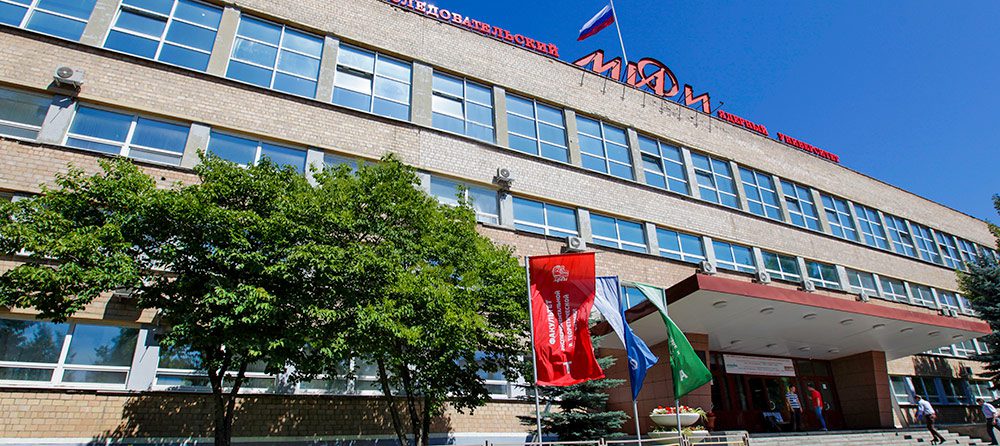
Best regards, Mikhail Strikhanov, Rector of the National Research Nuclear University MEPhI
HISTORY OF MEPhI
1942-Foundation of the Mechanics Institute of Ammunitions
1953-Reorganization into Moscow Engineering Physics Institute
2008-Obtaining the status of national researchuniversity. Reorganization into “National Research Nuclear University
2013-University became one of the best 15 universities of Russia – candidates for inclusion into TOP-100 world
National Research Nuclear University MEPhI (Moscow Engineering Physics Institute) is an educational and research institution founded and developed by six Nobel Prize winners and other world famous scientists, MEPhI aims to address global challenges of the 21st century in terms of energy and sci-tech issues. It is a highly focused science and engineering university. MEPhI is the head of a huge Russian nuclear education cluster, continuing to grow globally through the increase of its international cooperation with universities and organizations worldwide.
Why MEPhI?
One of the most famous universities in Russia
The leader of Russian Academic Excellence Project 5 top 100 in 2017
The main strategic partner of Rosatom State Atomic Energy Corporation in educational sphere
Scholarships and student support programs
Good career opportunities
2 International campuses (Moscow & Obninsk)
Safety and comfort Good facilities for research, sports, social activities
The educational program “General Medicine” has been implemented in MEPHI Obninsk campus since 2008 and within this period it became one of the most famous medical programs in Russia. The program is designed for high-quality training for preventive, diagnostic, therapeutic, rehabilitative, psychological and educational, organizational, managerial and research activities in the medical sphere. Highly qualified academic staff includes leading experts in the field of medicine, biological and medical sciences. The training is carried out on the modern equipment, and the practical work is arranged in the best clinics of Obninsk and Moscow. The graduate of the program can work as a general doctor at the outpatient clinics. After specialization in clinical internship, the graduate can work in all medical specialities of clinical medicine: surgery, internal medicine, obstetrics and gynecology, anesthesiology and resuscitation, etc.
An educational program in General Medicine at MEPhI is your lucky ticket to the successful future!
Judging by the results of the work, one can say with complete and absolute certainty that the experts of your university are world leaders in the wide range of fields.
Vladimir Vladimirovich Putin 22.01.2014, MEPhI.
DEPARTMENTS:
• Centre of Nuclear Medicine
• Pharmaceutical Learning Factory
• Faculty of Medicine
• Department of Medical Physics
• Department of Computer Medical Systems
• Department of Nuclear Medicine
• Department of Laser Micro- and Nanotechnology
• Department of Semiconductor Quantum Electronics
• Department of Medical Radiology nuclear medicine Laboratory of Bioinformatics
• Department of Biology
• Department of Radionuclide Medicine
• Department of Pharmaceutical and Radiophannaceutical Chemistry
• Department of General and Special Chemistry
• Department of Psychology
• Faculty: 215
• manpower: 105
• Students: 1020
UNIQUE ADVANTAGES
• The most promising and modem educational programs
• Module education, individualization of education.
• MEPhI’s unique experimental facilities and centres.
• 13 student’s development bureaus.
• Internationally accredited educational programs.
• Internships in the leading research centres and laboratories.
INTERNATIONAL RANKINGS
MEPhI is the first and only university among all the participants of Russian academic excellence project, which became one of the TOP-100 world universities according to two international ranking agencies-THE and QS.
STUDENT LIFE:
Student life is not only end-of-term assignments and exams. It opens up the possibility to make incredible breakthroughs, to implement ingenious ideas, to make unique discoveries! To make dreams come true the Associated tudent Body (ASB), established in MEPhI, strives to help students. The ASB is composed of the best student representatives and for four years in a row, it gains a victory in the Contest of Development Programs for student associations ‘activity organized by the Ministry of Education and science of Russian Federation.
Research and innovation activities, students’ self-government, creative teams, construction teams, volunteer movement, participation in sports, and the opportunity to try out the role of a journalist, a TV or radio-presenter the University creates all favourable conditions for strengthening creative potential of students.
SPORTS:
Studying at MEPhIis not only learning complex subjects. But it is also a great opportunity to take up sports. There is a choice of about 30 various sports clubs from athletics, martial arts, rugby, hockey, football, volleyball, fitness, climbing, sailing and badminton.
NON-RESIDENT APPLICANTS
Non-resident applicants MEPhI offers non-resident applicants and students comfortable hotels and dormitory in Moscow, Obninsk and other towns where regional branches of the University are located.
Volgograd State Medical University
Volgograd is one of Russia’s largest cities. It is known as Stalingrad all over the world and as such it became the site of the Stalingrad battle which predetermined the victory of Russia and its allies Britain, USA and France over German nazis in World War II. Volgograd is a southern city, an average temperature in summer is +26C and in winter -9C, Volgograd is placed on the bank of the Volga river. Due to its proximity to the river the climate in Volgograd is favourable. The population of Volgograd is over 1,000,000.
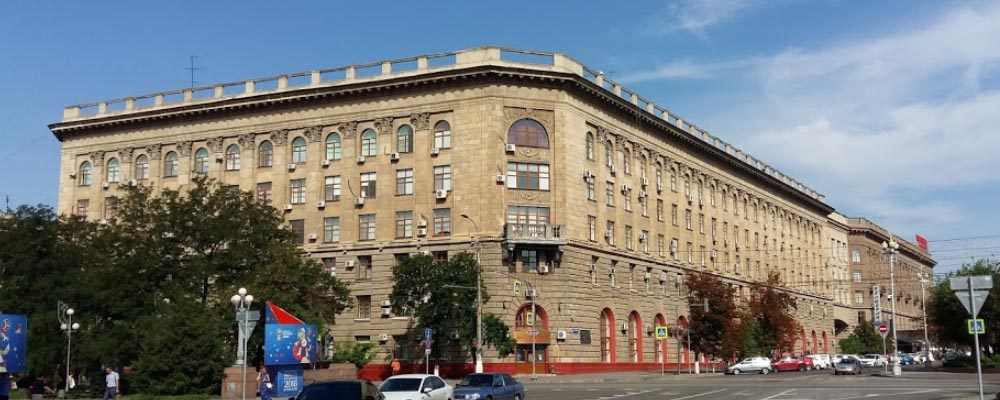
There is an international airport, a river terminal, train and bus stations in the city. There are direct flights to Italy , Germany, the Arab Emirates, Kuwait, Greece, Turkey, Syria, Sri-Lanka, the Lebanon and to all states of the former Commonwealth of Independent States from Volgograd.
There are 5-6 direct flights from Moscow to Volgograd daily. The flight time is 1.5 hour. Besides every day 3 trains leave Moscow for Volgograd, the journey lasts 18 hours. Volgograd is a big tourist centre, especially for foreigners. Over 70,000 foreign tourists come to Volgograd every year. There are many historical places, theatres, concert halls, restaurants and bars in Volgograd. There is a great number of supermarkets and open markets as well which can boast a wide variety of food.
There are some Orthodox Churches, a Polish Roman Catholic Church, a Protestant Church, a Mosque and a Synagogue in Volgograd.
International students can go there on religious holidays.
The Academy is headed by a prominent Russian scientist, Academician of the Russian Academy for Medical Sciences, Professor, M.D. Petrov Vladimir Ivanovich.
The Volgograd State Medical Academy has extensive international contacts and delegations from the USA, India, the People’s Republic of China, Bangladesh and other countries headed by top Embassy officials pay visits to the Academy. To further bilateral collaboration in the field of education, culture and research, the Academy has signed an agreement on cooperation with a North Chinese University (the city of Girin).
The Volgograd State Medical Academy collaborates with the World Health Organisation (WHO), has extensive scientific contacts with many foreign higher educational establishments; it participates in joint international programs with Belgium, France, Germany, Arkansas University of Medical Sciences (USA) in such fields as family medicine, arterial hypertension, epidemiology, tuberculosis diagnosis and treatment, pharmacology, pharmacy, etc. The Russian-American Family Practice Clinic has opened in Volgograd recently, the first one in the southern part of Russia.
The Volgograd State Medical Academy has its own scientific and methodic schools. The Research Institute for Pharmacology and that for Rheumatology are attached to the Academy. New trends in Pharmacology, Rheumatology, Obstetrics and Gynecology, Ophthalmology, Dentistry, etc. are being developed.
The Academy ranks as high as the 7 th in Russia; the quality of education at the Academy meets the most stringent international requirements.
There are 6 faculties at the Academy:
Faculty of General Medicine
Faculty of Dentistry
03Faculty of Pediatrics
04Faculty of Pharmaceutics
05Faculty of Medical Biology
06The faculty of Advanced Training for Doctors and Preparatory course for foreign students
600 highly skilled specialists work at 63 departments of the Academy. Among them, there are 11 academicians, 84 professors and 332 associate professors.
The Academy’s students are 3700 Russian and former USSR citizens and 700 international students from Asia, Africa, Latin America, Germany and Arab countries.
At its disposal, the Academy has 4 educational buildings, 5 big multiprofile clinics for 7000 in-patients with departments of surgery, cardiology, traumatology, ophthalmology, obstetrics and gynaecology, equipped with up to date facilities, experimental bases, a computer centre and comfortable hostels. There is also a Cardiology Centre which is one of the leaders in the field in the Russian Federation.
The Academy has been training international students since 1962. Students from 70 countries of Europe, Asia, Latin America have studied at our Academy. Over this period 2500 general practitioners, dentists and paediatricians have been trained for foreign countries.
About 70 foreign doctors take post-diploma courses every year.
Our graduates work in many countries: the USA, Great Britain, France, Germany, Czech Republic, Slovakia, India, Arab and African countries, etc.
The faculty of General Medicine trains specialists in internal disease, surgery, obstetrics and gynaecology, psychiatry, otorhinolaryngology, dermatology and venereology, infectious diseases, etc. The departments of the faculty are equipped with modem diagnostic facilities. Foreign scientists and consultants are invited to deliver lectures.
The course of studies is for 6 years.
Beginning with 2001 English-speaking students will be taught in English, which will enable them to begin studies without preliminary training at the Preparatory faculty.
POST-GRADUATION
The post-diploma training of foreign doctors is conducted at all departments of all faculties in the following fields:
Allergology and Immunology, Cardiology, Clinical Pharmacology, Endocrinology, Family Practice, Gastroenterology, Gynecology and Obstetrics, Infectious Diseases, Maxillofacial Surgery, Neurology, Oncology, Operative Dentistry, Ophthalmology, Orthodontics, Otolaryngology, Pathological Anatomy, Paediatrics, Phthisiology, Preventive Dentistry, Prosthetic Dentistry, Psychiatry, Pulmonology, Radial Therapy, Skin and ST Diseases, Social Hygiene and Public Health, Sports Medicine and Occupational Therapy, Pediatric Dentistry, Pediatric Surgery, Surgery, Therapy, Traumatology and Orthopaedics, Urology.
A Medical College attached to the Volgograd State Medical Academy trains paramedical specialists in the following specialities: Orthopaedic dentistry (dental mechanic)
Pharmacy (pharmaceutist).
Students Scientific Society
While studying students take part in the work of different scientific societies, carry out research, make scientific reports at Russian and international scientific conferences, publish results of their research in Russia and abroad.
Library
The library comprises over 630,000 books in Russian, French, Arab, German and other languages. There are dictionaries in all world languages. A local computer net functions in the library.
Hostels
There are 4 comfortable hostels including apartments with all modem conveniences for student’s study and rest. Students can rent a flat in any district of the city if they wish.
The Preparatory faculty for foreign citizens has been functioning since 1990, where during an academic year the trainees could learn the Russian language and get prepared to the main Academy courses.
The Postgraduate Training Faculty was also founded in The Academy for the graduates willing to continue their education in various special branches of medicine.
A number of different youth organizations, sport clubs, art and cultural groups work at the Medical Academy. There are 4 comfortable hostels for students of Tver State Medical Academy. Tver regional hospital
In 1952 the Academy celebrated its 50th anniversery. During this period, 12680 doctors, 6572 dentists and 373 foreign students graduated from the Academy. The professional teaching staff of the Academy has published 730 scientific works and 18 textbooks. In 1989 the Faculty of Graduate Studies was opened. In 1990, the Faculty of Pediatrics was opened. The Academy is internationally recognised, and students from countries like Germany, Italy, Greece, Poland, India, African States, and Sri Lanka study at the Faculty of International students of the Academy.
There are about 3413 students enrolled at the Academy, 1689 at the Medical Faculty, 1061 at the Faculty of Stomatology, 663 at the Faculty of Pediatrics, and the rest at the Faculty of International Students.
There are 49 Departments where 405 highly qualified academicians and lecturers are working. There are 51 Professors, 80 Doctors (consultants), and 240 Candidates of Medical Sciences(Ph.D).
The Departments are located in various teaching hospitals where bed occupancy numbers 6000. The Faculty of Stomatology has its own clinic with 300 stomatological chairs in use. All the faculties of the Academy are equiped with electronic microscopes, bio-chemical laboratories, radio-isotope labs, and lecture halls equipt with video apparatus.
The TSMA covers all the 8 big hospitals,5 Maternity homes,Tver Divisional hospitals,which has isolated rooms for infectious disease, Tuberculosis and cancer more than 30 polyclinics and maternity consultancies.
Kazan State Medical University
The Medical Faculty was founded in 1906. It is the ancestor of the University. Professor Ivan F. Ognev (1855-1928), an outstanding Russian morphologist, was its first Dean. During its 94-year history the Medical Faculty has made many changes as far as the contents of curriculum and teaching trends are concerned, but always highly qualified training of doctors in the main academic disciplines of medicine has been maintained.
The Peadiatric Faculty of the University was founded in 1930. It was the first peadiatric faculty in the world. The Bio-Medical Faculty was founded in 1963. It was the year of rapid development in the field of molecular biology. It also was started because of man’s entrance into space.
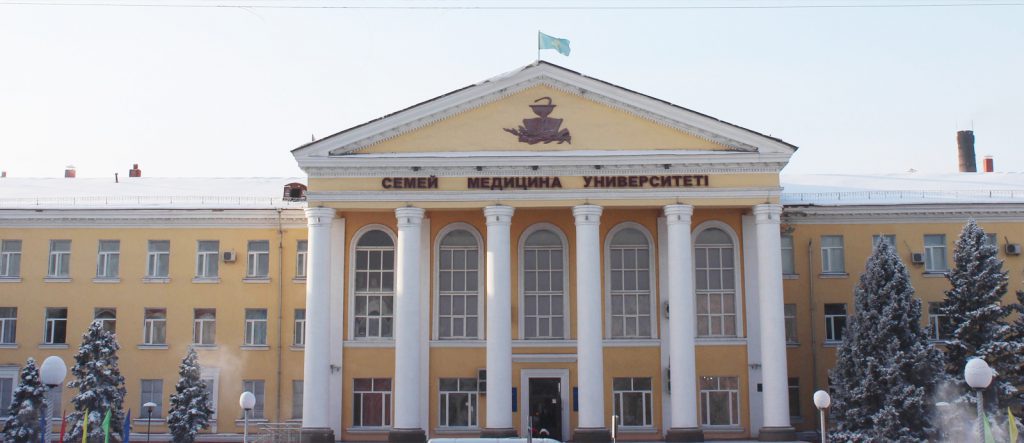
The Postgraduate Training Faculty was founded in 1971 to train graduates of the University in various special branches of medicine. From 1988 the University began offering courses for those desirous of defending their Doctoral degree. Specialization is offered through 70 chairs of the University with clinical courses covering 23 clinical professions.
The University Today The Russian State Medical University has respect in the Russian Federation and abroad. Today RSMU is a complex of buildings designed for practical classes, lectures, laboratory studies, research work and auxiliary services, covering a total area of 1,119 thousand square meters and including a students’ township «Medik». It consists of four hotel-type buildings with a dining hall (total area – 42000 sq. m.).
The Council of Scientists of the University has adopted the curriculum that includes a four-year course of basic bio-medical training at the first stage, a two-year course of basic medical education at the second stage and from 2 to 5 years of specialized postgraduate medical training.
There are three major faculties at RSMU where specialists in 51 branches of medicine are trained, including 37 medical, 7 biological, 5 chemical and 2 – in the fields of physics, mathematics, automation and computer systems.
The University students, postgraduates and interns, working for their academic degrees, are trained and get specialization, improve their knowledge and skills, carry out their thesis at 108 chairs, 58 scientific-research laboratories of RSMU. Among the staff of the University there are over 30 academicians and corresponding members of the Russian Academy of Sciences, Russian Academy of Medical Sciences and Russian Academy of Natural Sciences (RAS, RAMS and RANS – respectively), 24 State Prizewinners, 8 celebrated scientists of Russia and over 700 candidates of sciences.
FAR EASTERN FEDERAL UNIVERSITY
ABOUT FAR EASTERN FEDERAL UNIVERSITY
Far eastern Federal University (FEFU) is one of Russia’s leading centers of education and science, known throughout the region for its unique campus and world-class infrastructure. In our new facility, we strive to combine the traditions of the classical university with innovation across disciplines.
FEFU has a rapidly growing international faculty, and has recently doubled the number of incoming foreign students, who come to us from the USA, Japan, China, Korea, India, Vietnam, Malaysia, Philippines, Germany and other countries.
The new campus of Far Eastern Federal University is considered one of the best not only in Russia, but among new campuses around the world. Located on Russky (sand in the city of Vladivostok, the campus is surrounded by woodlands and faces a pristine stretch of the Pacific coast. As a residential learning community, its facilities are comfortable, light, welcoming and safe.
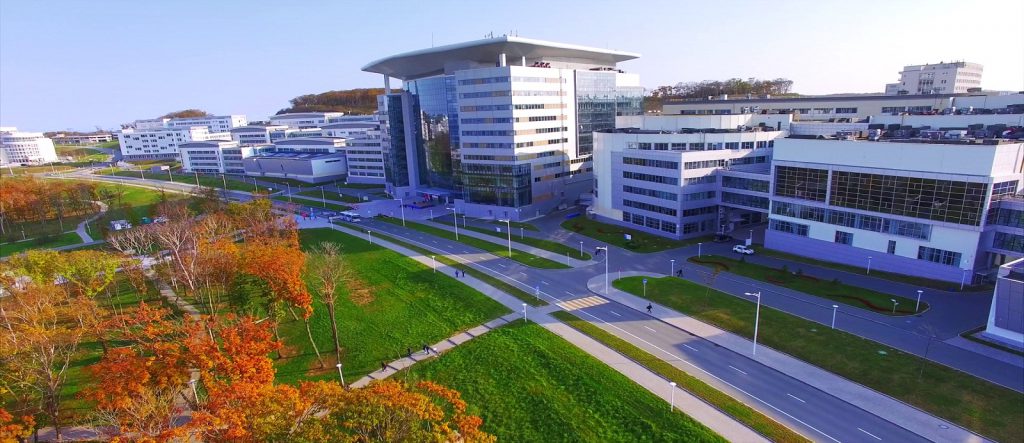
Our focus at the FEFu Russky Island campus is international educational programs and research, offering young scholars access and a world-class faculty, specialized equipment and cutting-edge technology. Educational programs are supported by facilities to help students reach their academic, leadership and creative goals. Combined, these aspects create the conditions to educate a new generation of motivated and innovative young people, conscious of the importance of geopolitical changes.
We welcome you to far Eastern Federal University, where the location and modern campus combine with the rich Russian cultural tradition. A FEFU education is not only prestigious and focused on contemporary issues, but engaging. Everyone who comes to us to learn and work at FEFU finds new knowledge and new friends. This is the place for talented young people.
FEFU Medical Center
FEFU Medical Center (hereinafter FEFU MC) provides specialized medical care. FEFU MC staff includes about 200 doctors some of whom were invited to work from the other parts of Russia and from abroad.
The total area of FEFU MC is approximately 53,000 ma.
FEFU MC uses medical equipment produced by leaders of the medical industry such as Siemens, Philips, Draeger, Karl Storz as it provides specialized high-technology medical assistance, diagnostics and rehabilitation for both Russian and international patients.
FEFU MC incorporates 14 medical departments that specialize in neurology and neurosurgery, orthopedics, women’s health, otorhinolaryngology, urinology, general surgery, internal medicine, rehabilitation, interventional cardiology, child health, intensive care unit.
Operation Unit has nine state-of-the-art operating rooms, one of which uses a unique DA VINCI surgery robot that can be operated by surgeons remotely. Also Operation Unit specialized operating rooms are equipped for open cardio surgery, X-ray controlled vascular, cardio and neuro manipulations, orthopedic surgery and neurosurgical procedures, and emergency shock treatment.
Patient diagnostics is conducted by Diagnosis Center, Laboratory Diagnosis Center and by Radiology Center that uses Positron-Emission Tomography (PET/CT) and 3Tesla MRI scanner. Biomedical testing is an important part of operational work of FEFU MC. FEFU MC has a strong partnership with FEFU School of Biomedicine and Pacific State Medical University. Together these two large university develop and test new technologies of medical treatment and diagnostics, and teach future experts in the medical field.
The mission of the FEFU School of Biomedicine is to promote integration of modern life science achievements with medical education and medical practice. The School of Biomedicine brings together an international team of lecturers, scientists, and highly-skilled doctors with broad clinical practice.
The FEFU School of Biomedicine is recognized by the WHO and QS World University Rankings.
The School of Biomedicine is situated side by side with the FEFU Medical Center, one of the most advanced medical facilities in Russia with the state-of-art equipment and broad possibilities. The School and the Medical Center are united in a single structure the FEFU Medical Cluster, and work in close collaboration as an integrated team. FEFU Medical Center is a multipurpose medical organizationof a full cycle, including all necessaryfacilities: diagnostic facility, research labs,clinic and hospital, and rehabilitation center, providing all necessary medical assistance and care.The Medical Center is especially proud with its highly-advanced neurosurgery and cardio-vascular facilities.
Students of the School of Biomedicine acquire and perfect their practical skills under the direction of Medical Center’s best experienced doctors. There is a well-established educational communication between students, professors and doctors for example, open weekly seminars organized by the head doctor of the hospital.
In the School, there are several research groupsspecializing in various fields of biomedical research molecular and cell medicine, pharmacology and drug discovery. Laboratories of the School of Biomedicine have the most advanced scientific and diagnostic equipment available, which offers unparalleled possibilities to perform cutting-edge research on a highest level.Students have a possibility to take an active part in the actual research work under supervision ofthe School’s academics, participating in major international research projects, conducted in collaboration with the top universities and research centers of Europe, Asia and America, including the University of Edinburgh (UK), the University of Lausanne (Switzerland), University of California, San Diego (USA), National Cancer Institute of NIH (USA).
Students of 18 different countries (what is 40% of all students on medical programs) have already chosen the FEFU School of Biomedicine and make progress in studying.
VLADIVOSTOK
Vladivostok: for a century and half, this has the most famous and picturesque European city in the eastern part of Russia. Since its founding Vladivostok has been associated with the romance of traveling and the political significance of being the Russian Empire’s eastern outpost on the Pacific. Long the home to fishermen and sailors, scientists and machinists, Vladivostok today is the focus of new economic and cultural development in Russia, a city of opportunities and prospects made stronger by transnational connections. Vladivostok is not just a beautiful and attractive seaside place. It is the largest Russian port on the Pacific coast, a place of regular meetings and a diversity of languages, cultures and religions. As the transportation, industrial, cultural and scientific center of the Russian Far East, Vladivostok is a gateway to the Asia-Pacific region.
But above all, Vladivostok is a city of young, active, educated and creative people. And you, as a current applicant to Far Eastern Federal University, have the unique opportunity to join in this community. At FEFU, you will spend your student days studying and living on the edge of the Pacific, in the modern, comfortable campus built on Russky Island, Just is a short trip on a striking new bridge to downtown Vladivostok.
On its Russky Island campus, Far Eastern Federal University offers both a contemplative natural setting among the bays, beaches, and woodlands of the Pacific coast while also being close to Vladivostok’s rich cultural life. As a student at FEFU, you will enjoy classes in the new, state-of-the art facilities, surrounded by a beautiful landscape. Far Eastern Federal University offers you the space to combine an excellent education and diverting leisure activities with the ability to connect with your peers and pursue your dreams.
Vladivostok – Russia – FEFU: is not just an interesting point on the map. It’s a place where you can succeed!
We are excited to welcome you at the website of Far Eastern Federal University, one of the leading federal universities of Russia.
FEFU is the bearer of traditions of the Russian classical culture, science and education. Far Eastern Federal University has its origins in 1899 at the time when the Oriental Institute was founded in Vladivostok.
Today FEFU is the only classical university in Eastern Russia. In incorporates Schools with generations-old traditions and areas of research that form the core of our intellectual base.
One of the FEFU’s advantages is its geographic location in the center of the Asia Pacific region, which is now one of the most dynamically developing parts of the world. This place is the second pole of a world civilization, which includes the leading counties of the globe, such as China, the United States, Japan, India and many world-famed metropolitan cities, such as Singapore, Hong Kong, Sydney and Seoul.
Being a link or a cultural bridge between Russia and this part of the world remains one of the FEFU’s main objectives. This is the reason why our University is not only a pathway to your professional future, but also a road into the future of the entire country, where all motivated, hardworking and talented young people will find their rightful places!
We are sure that through combining our endeavors we shall be able to achieve our shared objectives.
Stavropol State Medical University
The Medical Faculty was founded in 1906. It is the ancestor of the University. Professor Ivan F. Ognev (1855-1928), an outstanding Russian morphologist, was its first Dean. During its 94-year history the Medical Faculty has made many changes as far as the contents of curriculum and teaching trends are concerned, but always highly qualified training of doctors in the main academic disciplines of medicine has been maintained.
The Peadiatric Faculty of the University was founded in 1930. It was the first peadiatric faculty in the world. The Bio-Medical Faculty was founded in 1963. It was the year of rapid development in the field of molecular biology. It also was started because of man’s entrance into space.
The Postgraduate Training Faculty was founded in 1971 to train graduates of the University in various special branches of medicine. From 1988 the University began offering courses for those desirous of defending their Doctoral degree. Specialization is offered through 70 chairs of the University with clinical courses covering 23 clinical professions.
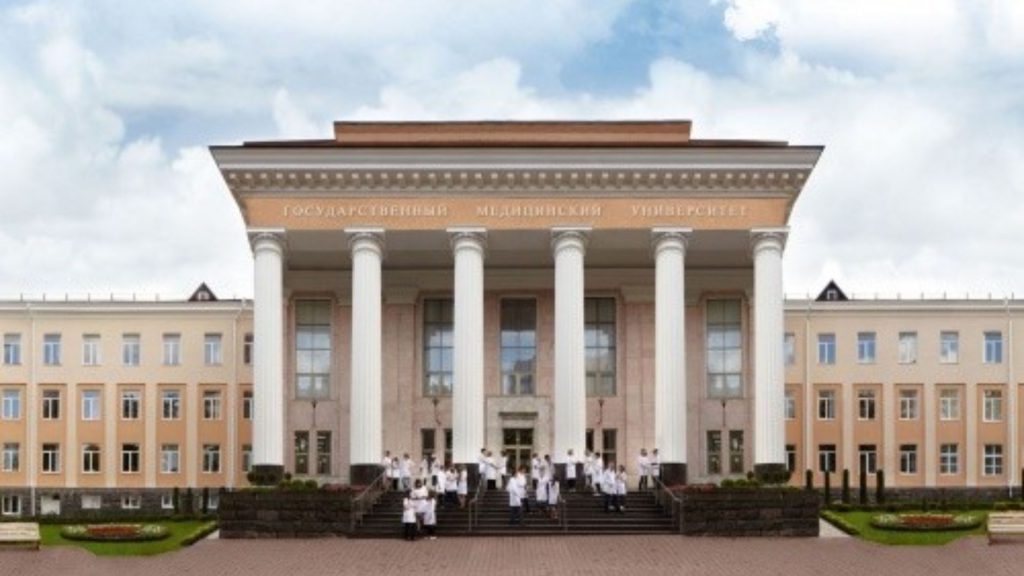
The University Today The Russian State Medical University has respect in the Russian Federation and abroad. Today RSMU is a complex of buildings designed for practical classes, lectures, laboratory studies, research work and auxiliary services, covering a total area of 1,119 thousand square meters and including a students’ township «Medik». It consists of four hotel-type buildings with a dining hall (total area – 42000 sq. m.).
The Council of Scientists of the University has adopted the curriculum that includes a four-year course of basic bio-medical training at the first stage, a two-year course of basic medical education at the second stage and from 2 to 5 years of specialized postgraduate medical training.
There are three major faculties at RSMU where specialists in 51 branches of medicine are trained, including 37 medical, 7 biological, 5 chemical and 2 – in the fields of physics, mathematics, automation and computer systems.
The University students, postgraduates and interns, working for their academic degrees, are trained and get specialization, improve their knowledge and skills, carry out their thesis at 108 chairs, 58 scientific-research laboratories of RSMU. Among the staff of the University there are over 30 academicians and corresponding members of the Russian Academy of Sciences, Russian Academy of Medical Sciences and Russian Academy of Natural Sciences (RAS, RAMS and RANS – respectively), 24 State Prizewinners, 8 celebrated scientists of Russia and over 700 candidates of sciences.
Crimean Federal University
The Medical Faculty was founded in 1906. It is the ancestor of the University. Professor Ivan F. Ognev (1855-1928), an outstanding Russian morphologist, was its first Dean. During its 94-year history the Medical Faculty has made many changes as far as the contents of curriculum and teaching trends are concerned, but always highly qualified training of doctors in the main academic disciplines of medicine has been maintained.
The Peadiatric Faculty of the University was founded in 1930. It was the first peadiatric faculty in the world. The Bio-Medical Faculty was founded in 1963. It was the year of rapid development in the field of molecular biology. It also was started because of man’s entrance into space.
The Postgraduate Training Faculty was founded in 1971 to train graduates of the University in various special branches of medicine. From 1988 the University began offering courses for those desirous of defending their Doctoral degree. Specialization is offered through 70 chairs of the University with clinical courses covering 23 clinical professions.
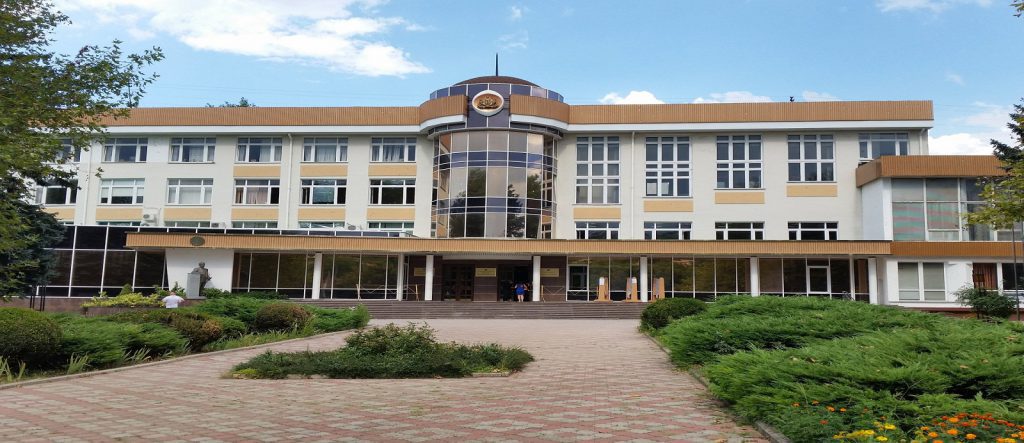
The University Today The Russian State Medical University has respect in the Russian Federation and abroad. Today RSMU is a complex of buildings designed for practical classes, lectures, laboratory studies, research work and auxiliary services, covering a total area of 1,119 thousand square meters and including a students’ township «Medik». It consists of four hotel-type buildings with a dining hall (total area – 42000 sq. m.).
The Council of Scientists of the University has adopted the curriculum that includes a four-year course of basic bio-medical training at the first stage, a two-year course of basic medical education at the second stage and from 2 to 5 years of specialized postgraduate medical training.
There are three major faculties at RSMU where specialists in 51 branches of medicine are trained, including 37 medical, 7 biological, 5 chemical and 2 – in the fields of physics, mathematics, automation and computer systems.
The University students, postgraduates and interns, working for their academic degrees, are trained and get specialization, improve their knowledge and skills, carry out their thesis at 108 chairs, 58 scientific-research laboratories of RSMU. Among the staff of the University there are over 30 academicians and corresponding members of the Russian Academy of Sciences, Russian Academy of Medical Sciences and Russian Academy of Natural Sciences (RAS, RAMS and RANS – respectively), 24 State Prizewinners, 8 celebrated scientists of Russia and over 700 candidates of sciences.
ENGINEERING
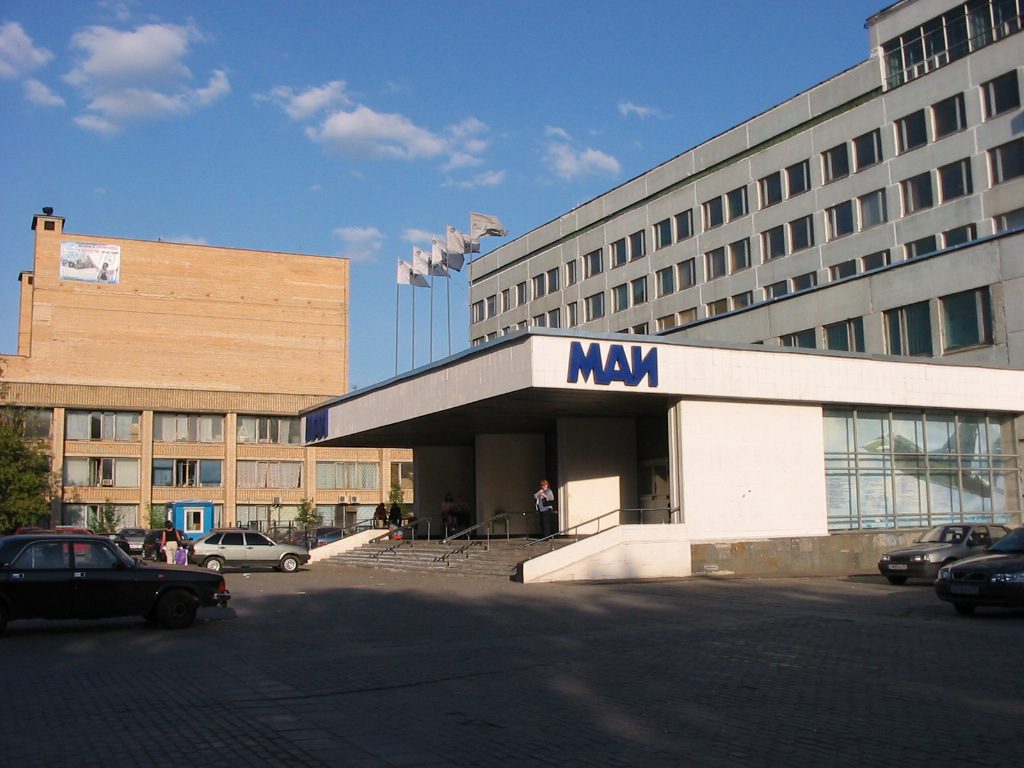
Moscow State Aviation Institute (MAI)
Moscow Aviation Institute provides training throughout the whole lifecycle of high-tech products from the system design to the implementation of separate proceedings. Educational process is based on real ongoing scientific and industrial projects and puts special emphasis practical skills.
MAI’s mission is to train world's elite manpower for Industry 4.0 with breakthrough research at all stages of modern technologies’ lifecycle. In order to achieve that, MAI cooperates with leading Russian and foreign industry-based corporations such as COMAC, ENAC, Safran, BrahMos Aerospace, HAL, PJSC “United Aircraft Corporation”, Roscosmos, Rostec and others.
Moscow Aviation Institute is one of the most popular universities in the field of aerospace training and one of the biggest Russian technical universities.
Among the most notable areas of university’s research are Aircraft, Space and Energy systems, IT, new materials and production technologies, the multifaceted use of aerospace and digital technologies.
More than 175 000 professionals have graduated from MAI since its foundation. More than 70% of MAI graduates are being employed by leading national and international industry-based corporations.
Moscow Aviation Institute holds the record among universities in the number of graduates who have become space and test pilots. Among MAI Alumni there are 23 cosmonauts with more than 15 years of time spent on space missions combined and 65 spacewalks.
The variety of executives, established politicians and performers graduated from MAI throughout its history indicates the special emphasis on culture of soft skills development nurtured in university.
Moscow Aviation Institute graduates took part in development and creation of most major Russian aircrafts. A large number of the world's modern aviation and aerospace systems was created under the guidance and with direct participation of MAI graduates.
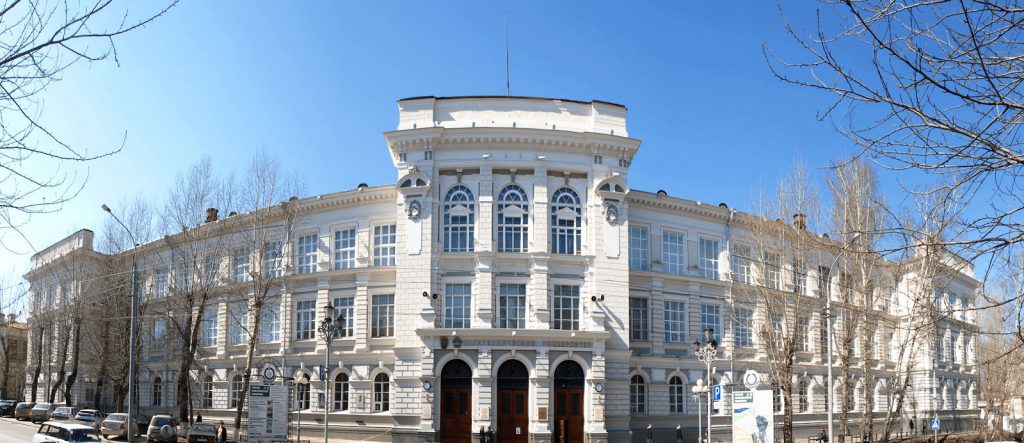
National Research Tomsk Polytechnic University
Tomsk Polytechnic University was founded in 1896 as Tomsk Technological Institute of Emperor Nicholas II. The first technical higher educational institution in the Asian part of Russia was led by Professor Efim Zubashev who laid the foundation for the development of the best traditions of TPU as a large Siberian center for education and research. Tomsk Technological Institute (TTI) ensured education and training of highly qualified engineers, which strengthened the industry and economy in Siberia, the Far East and the CIS countries (Kazakhstan, Uzbekistan, Kirghizia, and etc.). TTI established remarkable schools in the field of chemistry, mechanical engineering and materials science, physics and mathematics, electrical and power engineering, mining and geology, and building and architecture.
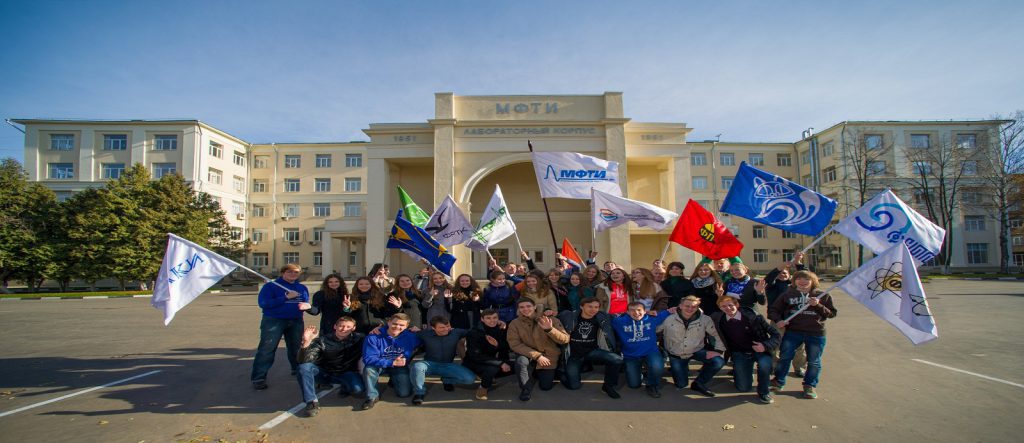
Moscow Institute Of Physics And Technology (State University)
MIPT is one of the leading Russian universities in the areas of physics and technology. The university holds a reputable position in the country and abroad in qualified graduate training. Students and graduates of MIPT are representatives of an elite circle who, thanks to their interdisciplinary scientific surroundings, are able to fully realize their potential. The strong alumni community is spread all over and includes top range scientists, businessmen, politicians, people of art, many of who are awardees of prestigious international prizes. Phystech (the university) and phystechs (its alumni) are strongly proud and supportive of each other.
MIPT was set up on September 17, 1951 by Resolution №3517-1635 of the Soviet Cabinet of Ministers on the basis of the Department of Physics and Technology at the Lomonosov Moscow State University. The department started working on November 25, 1946. On October 1, 1951, the resolution was approvedby executive order of the Soviet Education Ministry. On November 2, 2009, MIPT was granted the status of National Research University by the Russian government.
MIPT has a very rich history. Its founders included academicians Pyotr Kapitsa, Nikolay Semenov and Sergey Khristianovich. Its first professors were Nobel Prize winners Kapitsa, Semenov and Lev Landau, and its first rector was Ivan Petrov. There are Nobel Prize winners among MIPT’s graduates as well.
Many MIPT professors are leading Russian scientists, including over 80 members of the Russian Academy of Sciences. From the outset, MIPT has used a unique system for training specialists, known as the Phystech System, which combines fundamental science, engineering disciplines and student research. With a history rich in major events and longstanding traditions, MIPT pays well-deserved attention to its symbols.
MIPT has an original emblem, which embodies its devotion to science. Every 5 years MIPT marks two anniversaries, celebrating the creation of the Department of Physics and Technology at Moscow State University on November 25, 1946 and the creation of Moscow Institute of Physics and Technology, which took place five years later.
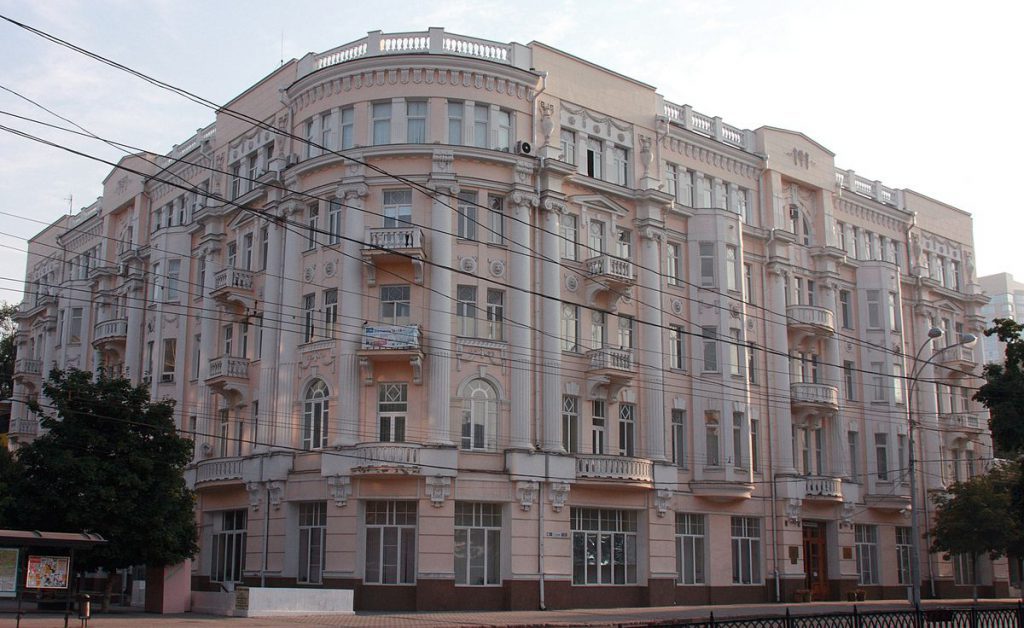
Southern Federal University
Southern Federal University is a modern research university with emphasis on innovations and entrepreneurship. In its academic activities it combines studies with fundamental and applied science, as well as cutting-edge technologies and innovative approaches.
SFedU traces its history back to 1915.
The University’s position in the national university rankings provides persuasive evidence to its achievements, a positive image and a passion for excellence: SFedU was awarded the 5th place in the Annual Independent National University Rankings.
Over 33 thousand SFedU students (the 2015 data) have already had the opportunity to appreciate the advantages of studying at SFedU, some of which are listed below.
The deserved top place occupied by SFedU in the academic rankings of Russian universities; the well-established traditions maintained by SFedU in the area of education and research; the image which is positive and looks attractive to the prospective applicant
Diverse opportunities of postgraduate and further education; the well-developed network of university branches in the South of Russia
A leading position in the area of innovations and research; integration of research into education; a winning combination of fundamental and applied research; highly reputed schools of thought; open-minded and creative teaching staff; up-to-date research facilities and appliances; collaboration with the Russian Academy of Sciences and international research facilities
Extensive supportive infrastructure for increased efficiency of professional and research training (Research & Education Centers, Centers providing public access to research facilities, scientific journals published by SFedU, SFedU Publishing Center, etc.)
Great diversity and flexibility of study programsSFedU applicants can pick and choose from a range of Bachelor, Master, and Doctorate degree programs in a broadest range of sciences and humanities: history, philosophy, art, economics, law, psychology, biology, chemistry, physics, mathematics, computer science. Each program contains a number of core courses, but apart from them students can choose between elective courses. It is also possible to apply for several programs.
Up-to-date research facilities and opportunities for young researchers
SFedU is proud of its numerous research institutes dating back to the Soviet era, but equipped with cutting-edge facilities. Award-winning researchers holding over 150 international patents work and teach at SFedU. SFedU researchers strive to exchange experience with foreign colleagues and frequently visit international conferences. High Scopus citation score bears evidence to the importance of our scientific publications.
Well-established century-old traditions maintained by SFedU
SFedU history dates back to 1915, and since then the university has gained a strong reputation for the achievements of its faculty and researchers, as well as students and graduates. Nobel Prize winner Aleksandr Solzhenitsyn is among them.
The global stength of our reputation and qualifications. International dimension SFedU strives to make sure that all the study programs we offer are kept in line with international standards and the principles of the Bologna Declaration. There are 28 programs that have undergone international accreditation. SFedU maintains partnership links with numerous highly-reputed universities and research centers worldwide. We foster diversity and welcome international exchange and cooperation.
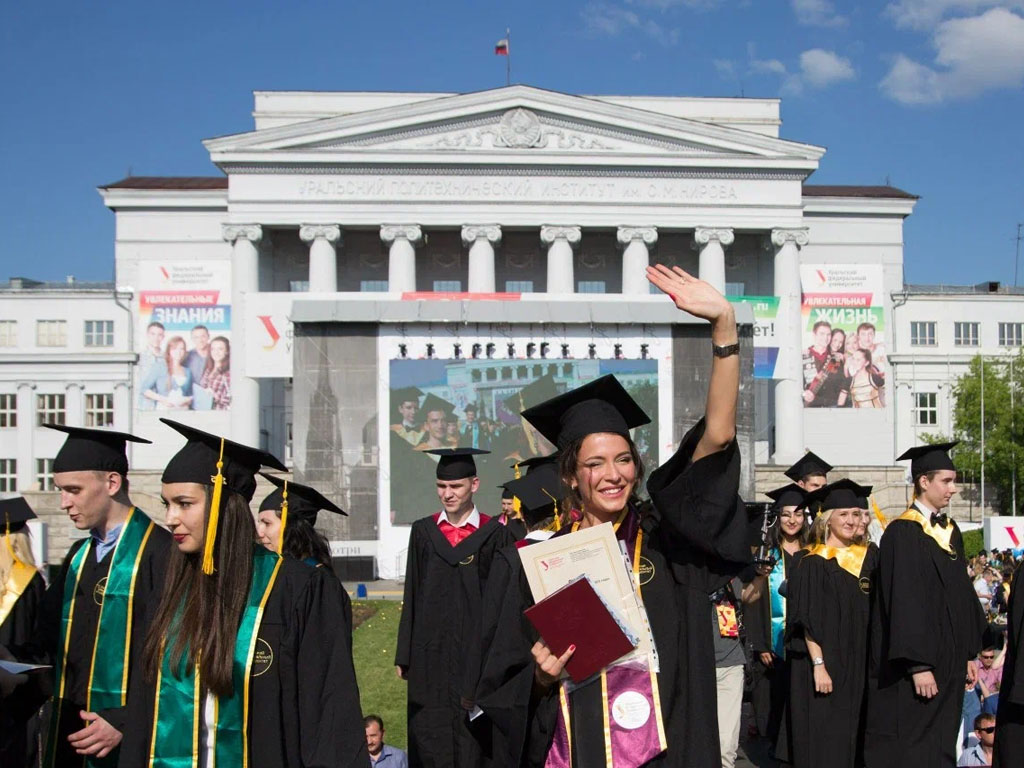
Ural Federal University (UFU)
Ural Federal University (UrFU) is one of the largest and leading higher educational institutions in Russia bringing together fundamental education and innovative approach towards the challenges of modern times.
UrFU is a world-class university in the heart of Eurasia committed to the complex and sustainable development of research and teaching.
Ural Federal University is home to 36 200+ students from 115+ countries of the world and more than 4 000+ faculty members including the top-notch global experts. Our Institutes offer more than 400+ Bachelor's, Master's and Doctoral degree programs in natural sciences, engineering, social sciences, humanities, economics and management taught in Russian and English. The number of UrFU alumni exceeds 380 000+.
Breakthrough studies are pursued in 164 modern research and development laboratories and 72 research excellence centers. The university is open to international collaboration having more than 410+ partners all over the globe and is an active participant of such initiatives as BRICS Network University, SCO Network University, CIS University, ASRTU, Silk Road Universities Network.
Ural Federal University became the first Russian University to be noticed by Fitch Ratings Agency. This agency included UrFU into the Long-Term Foreign- and Local-Currency Issuer Default Ratings (“IDR”) at “BB+” level. Besides, the university was assigned a National Long-Term rating of 'AA (rus)' and a Short-term foreign currency IDR of 'B'.
UrFU electronic archive is ranked 1st in Russia and has been included into the top-400 of Webometrics Open Archives’ Ranking of World Universities.
UrFU Specialized Educational Scientific Center (UrFU Lyceum) is ranked among top-10 of the best Russian schools, according to the results of the study of Moscow Center for Continuous Mathematical Education, conducted with the assistance of the Federal Ministry of Education and Science.
Faculties:
• International Economics and Business
• Public Affairs and Social Sciences
• Engineering School of Information Technologies, Telecommunications and Control Systems
• Graduate School of Economics and Management
• Institute of Chemical Engineering
• Institute of Civil Engineering and Architecture
• Institute of Fundamental Education
• Institute of Natural Sciences and Mathematics
• Institute of New Materials and Technologies
• Institute of Open Educational Technologies
• Institute of Physical Education, Sports and Youth Policy
• Institute of Physics and Technology
Student Life:
Ural Federal University organizes more than 200 sports, social and cultural events and actively supports international events organized in the city and region. International students can become members of 23 student organizations, including such large international student organizations as BEST (Board of European Students of Technology), AIESEC, Erasmus Student Network, etc.; they also can develop their talents in performing groups of UrFU. UrFU sport infrastructure provides more than 30 teams with the opportunity to exercise and perform. Victories of the university students in the largest sport competitions and contests make a great contribution to raising the university’s reputation. Successful UrFU sportsmen are the best examples for the thousands of students to do sports and follow a healthy lifestyle. Currently, 23 cooperation agreements in the area of innovation are active between UrFU and other companies and enterprises. The Innovative System includes innovative centers, small innovative enterprises and departments forming the support system for development of research-intensive entrepreneurship (from generating innovative ideas to innovative products manufacturing).
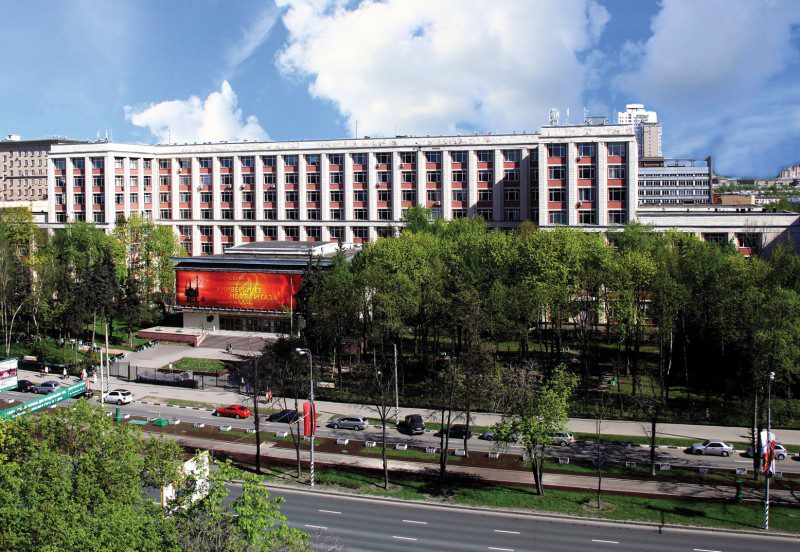
Gubkin Russian State University Of Oil And Gas
Gubkin Russian State University of Oil and Gas (National Research University) is the leading institution in the system of higher oil and gas education in Russia.
Gubkin University is a powerful national research center and a real source of manpower for the Russian oil and gas industry. According to the proportion of budget income from research, the University is in top rank among the Russian industry universities.
Gubkin University was founded in 1930 by the outstanding scientist, academician Ivan Gubkin. For almost a century, the University has trained more than 90,000 diploma engineers, Candidates and Doctors of Sciences.
Gubkin University actively applies innovative learning methods and the interdisciplinary approach to education, develops infrastructure for training in virtual environment of professional activity based on interactive full-scale simulators, computer models and systems.
Today Gubkin University is a modern innovative university, one of the flagships of Russian higher technical education which received the status of ‘National Research University’ in 2010. Representatives from all 83 regions of Russia and 65 countries from all over the world study at Gubkin University. Every ninth student is international. The University cooperates actively with leading academic institutions on the global level and develops various international Master’s degree programs.
“Your university is a powerful center of national science, a true talent foundry for Russian oil and gas industry. Gubkin University diploma is respected and recognized far beyond the borders of the country. I have no doubt that your university will continue to keep its glorious traditions, and its graduates will honestly serve Russia.”
President of the Russian Federation Vladimir Putin
The University infrastructure includes three academic buildings connected by walkways, several gyms, the palace of culture with modern concert equipment and creative studio facilities, a new building of the National Oil and Gas Library with reading and conference halls, the sports camp and the comfortable recreation camp in Tver Oblast. Gubkin University campus contains five multi-storey buildings for 4,176 accommodation places, including the stadium, several gyms, leisure centers, business school, the theater hall and the music club.
Cities In Russia
The largest country in the world, Russia offers a broad array of travel experiences, from treks up the slopes of glacier-capped mountains to strolls along the shoreline of Earth’s oldest lake. Historical sites and cultural activities in the country’s great cities abound as well.
Whether you’re exploring the grounds of Moscow’s Kremlin or wandering through the steppes of Mongolia, a visit to Russia is an adventure not soon forgotten. These top tourists attractions in Russia can inspire a great Russian itinerary for a memorable trip.
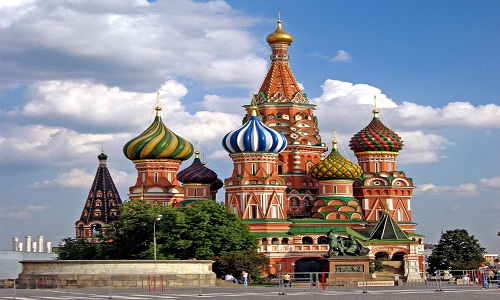
MOSCOW
Moscow is also home to some the best museums, galleries and cultural institutions in the world, so make sure not to miss the Bolshoi Theater’s world-class performances, the Tretyakov Gallery – a true celebration of Russian fine art; or the Pushkin Fine Arts Museum – one of the planet’s greatest and most prestigious galleries of European art.
Also of great interest are the city’s house museums where you can learn about Russia’s fantastic literary heritage, such as the Pushkin Memorial Museum, the Tolstoy House Museum , the Dostoevsky House Museum, the Mayakovsky Museum or the small but utterly enchanting Gogol Memorial Rooms.
Nightlife, shopping and dining are all first-class in Moscow, the city boasting an impressive variety of bars, clubs, restaurants and fashion stores.
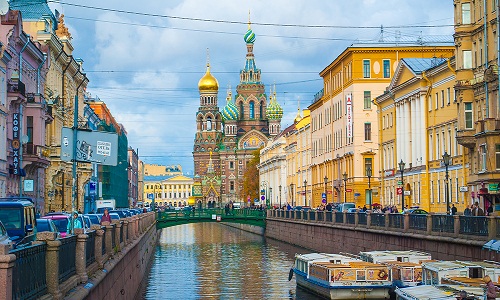
ST. PETERSBURG
Often regarded as Russia’s most European and forward-looking city, St. Petersburg makes for a wonderful travel destination, especially for history and culture lovers. More than 2000 libraries, 220 museums and 80 theatres make up the city’s well-established cultural landscape, while edgy art galleries, bohemian cafes, boisterous underground clubs and cool hostels with minimalist Scandinavian interiors show off St. Petersburg’s innovative side.
The UNESCO-listed historic centre with its fascinating network of canals and eye-catching Baroque and Neoclassical architectural styles is certainly a must for everyone visiting the former capital of Russia. So are the city’s greatest museums – the fabulous Hermitage and the Russian Museum; or the bustling Nevsky Prospekt – St. Petersburg’s main avenue and its premier destination for shopping, dining and nightlife.
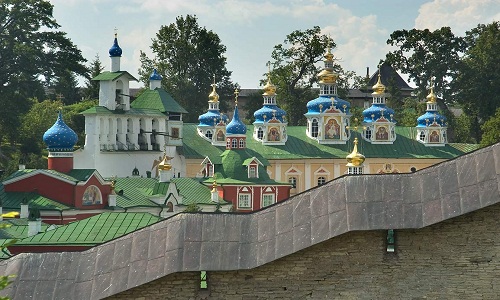
PSKOV & PECHORY
Located in the north west of Russia, just 30km from Estonia, the ancient and historical city of Pskov, with its fortified riverside Kremlin and Trinity Cathedral, is a firm favorite amongst tourists. Pskov dates back as far as 903, making it as old as the country itself.
Within the Kremlin’s crumbling walls is the gorgeous Trinity Cathedral, which is definitely a highlight of any visit to Pskov.
The monastery was founded in 1473 when the first hermits settled in local caves. If monastic law permits, enter the spooky burial caves where over 10,000 monks bodies lie in coffins, piled on top of each other in the tunnel walls.
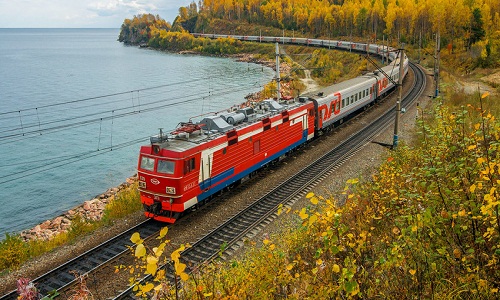
TRANS SIBERIAN RAILWAY
You need strong nerves to go on a train journey around Eurasia. Not everyone can spend almost a week in an enclosed space on wheels.
However, those brave souls who do make the journey are rewarded by seeing 80 cities, the Volga River, Ural Mountains, Baraba steppe with its ominous clouds, Yenisei River, Barguzinsky Mountains, the woods of Siberia, Khekhtsir Range and Lake Baikal. Your journey will leave you with vivid memories, while the constant motion of the train will stay with you for days after.
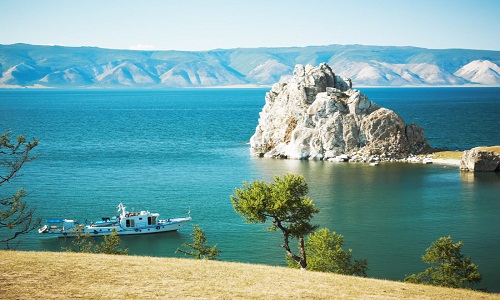
IRKUTSK AND LAKE BAIKAL
Locally known as the Paris of Siberia, Irkutsk is a fairly compact city with an impressive collection of historic churches, museums, theatres and beautiful wooden houses adorned with intricate hand-carved decorations. Moreover, it is the closest major city to the fabulous Lake Baikal
Irkutsk’s main attractions comprise the City History Museum, the Geology Museum with its memorable display of gems and minerals collected from Siberia and the Russian Far East, as well as the Old Town, where lively pavement cafes, eye-catching 19th century architecture and joyful street artists make for a pleasant and relaxed atmosphere in which to hang out, dine and watch the world go by.
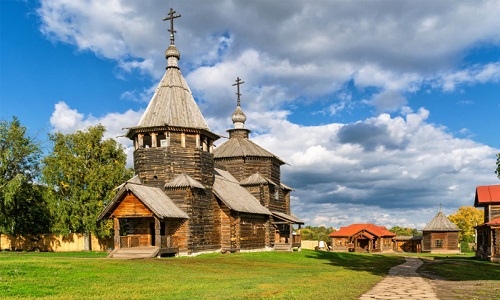
SAZDAL
Sazdal is a small, picturesque town in the Vladimir region, which is officially protected against modern developments and loaded to the hilt with old buildings such as the Kremlin and Cathedral. Dating back to 1024, ancient Suzdal forms part of the Golden Ring, with stunning medieval architecture and an astounding number of churches and monasteries, making it a major religious centre in Russia. Suzdal, with its pretty meadows and livestock that graze freely along the grassy lanes, retains the feel of a small pastoral village despite the host of impressive buildings and a population of over 12,000 people.
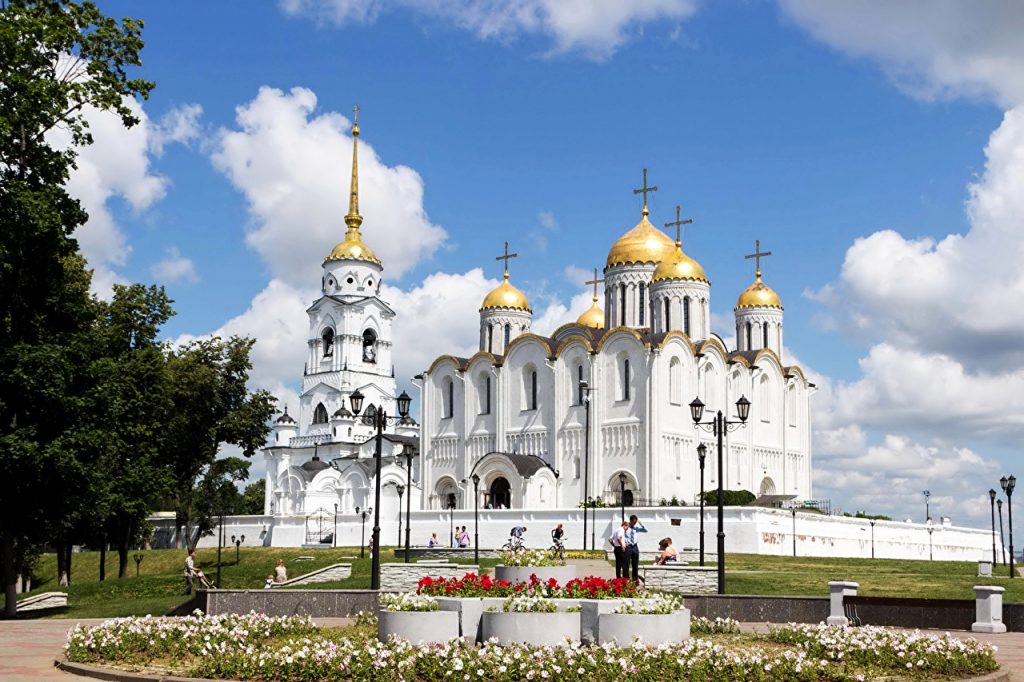
VLADIMIR
Only 15 years ago, this easternmost point of the famous Trans-Siberian Highway was a closed city, but these days, Vladivostok is blossoming with modern architecture, lovely cuisine and endless entertaining opportunities.
During summer, the Sportivnaya Harbor is the liveliest place in town, greeting visitors with an amusement park and dozens of street vendors selling drinks, food and all kinds of colorful souvenirs. Other places of interest in Vladivostok include Ploschad Bortsov Revolutsy – the city’s main square, the state-of-the-art Russky Island Bridge that connects the city with the small island, the Arsenyev Regional History Museum and the Primorsky State Art Gallery.
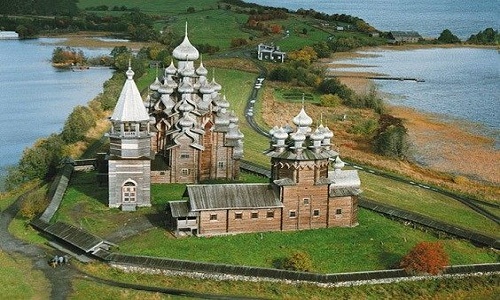
KIZHI ISLAND
Not as famous as Moscow and St Petersburg, but an equally noteworthy Russian destination is the Kizhi Island in the heart of Lake Onega. Known especially for its fabulous open-air museum, this one-of-a-kind complex of great historical, cultural and natural interest hosts an amazing collection of wooden structures, some of them part of the UNESCO World Heritage list as far as the 14th century.
In addition to some of the country’s finest examples of wooden architecture, visitors will have the chance to explore a series of ancient rural settlements characteristic to the Karelia region and scattered among this beautiful, almost pristine nature paradise.
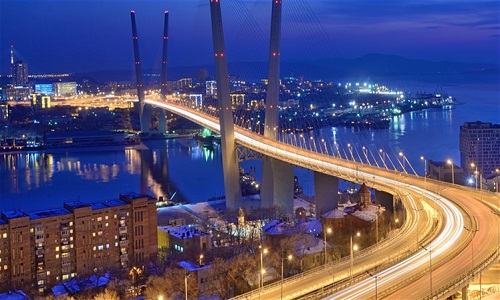
VLADIVOSTOK
Coincidence or not, one of Russia’s most attractive cities is a picturesque port on the Pacific Ocean that’s closer to China, Japan and the Korean territory than it is to the national Lake Baikal in Siberia. So, a fabulous 4,000 miles from Moscow lies Vladivostok, a town that impresses with its scenic location, uninterrupted sea views and hilly streets that remind travelers of storied San Francisco.
Only 15 years ago, this easternmost point of the famous Trans-Siberian Highway was a closed city, but these days, Vladivostok is blossoming with modern architecture, lovely cuisine and endless entertaining opportunities.
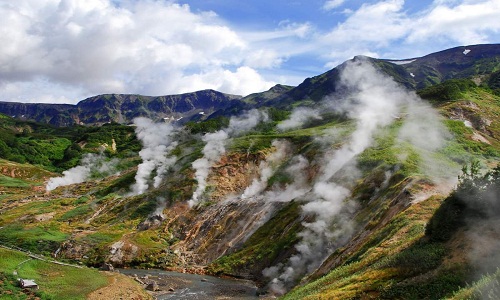
VALLEYS OF GEYSERS
Situated on the Kamchatka Peninsula in the Russian Far East, the Valley of Geysers is the second largest geyser field in the world.
The Valley of Geysers was discovered in 1941 by local scientist Tatyana Ustinova.
Since then it became a popular tourist attraction in Kamchatka and attracts a lot of interest from scientists and tourists
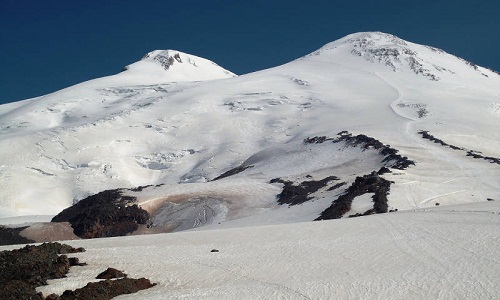
MOUNT ELBRUS
Mount Elbrus is located in the Caucasus Mountain Range in Southern Russia. At 5,642 meters (18,510 ft), Elbrus is included as one of the Seven Summits, the highest summits on each of the planet’s seven continents, attracting both experienced and novice mountain climbers. While the mountain was formed from a volcano, it is considered dormant, with no recorded eruptions. A cable car system can take visitors as high as 3,800 meters (12,500 ft), facilitating ascents to the summit.
SEASON
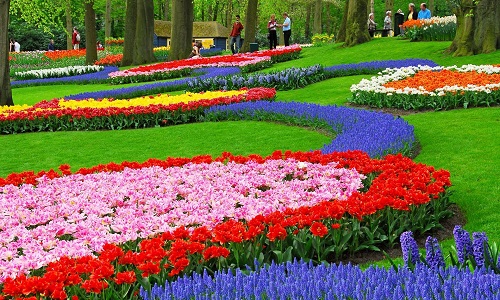
SPRING SEASON IN RUSSIA
Early spring is almost like winter but starting from mid-April it’s becoming pretty warm almost everywhere (except mountain regions), trees are becoming green, flowers bloom and there’s such a good smell of them in the air.
Late spring is perfect time to visit beautiful parks such as the one in Pavlovsk near Saint-Petersburg, or take a walk through the various cities enjoying pleasant atmosphere and cool air of spring time.
Russian vacations in spring will give you a lot of impressions that you will keep in your memory for all your life.
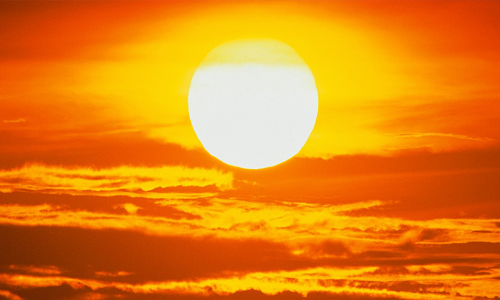
SUMMER SEASON IN RUSSIA
Summer is a great time to visit almost any place in Russia. You can visit Moscow or go to remote regions of Russia to enjoy unique nature — to go to such regions as Siberia, Altai or Kamchatka. There are a lot of possibilities to get to know Russian nature. For example, you can go to Lake Baikal — the longest and the deepest lake of the world.
If you would like to come in summer, you can also visit famous resorts, residences of the Russian Tsars and make Russian river cruises. Summer is also the time of renowned White Nights. While staying in St. Petersburg you have an unique chance to feel deeply this time of the year and enjoy fabulous strolls all the night long and the famous bridge partings.
The towns — residences of the Russian Tsars — open their doors for you. Pushkin, Pavlovsk, Peterhof (Petrodvorets) are also good places to have rest and enjoy summer time.
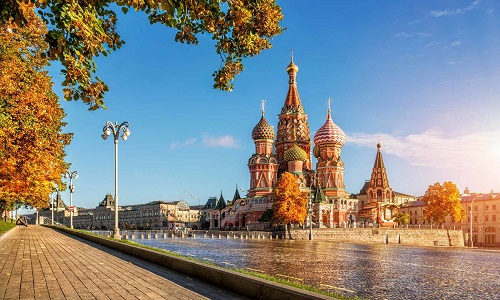
AUTUMNS SEASON IN RUSSIA
Autumn is good for Russian vacations too. From September to mid-October the weather is still fine, sometimes it’s even close to this in summer, but the nature is becoming more and more beautiful as leaves on trees are becoming yellow, orange, red and brown.
In autumn you can visit main cities, to have a voyage and canals and rivers on a small boat wrapping yourself in a cozy plaid enjoying splendid views of the Moscow or Saint-Petersburg from water, to have a walk in autumn parks, raking colorful fallen leaves from trees with your legs, or to cruise down the Volga river.
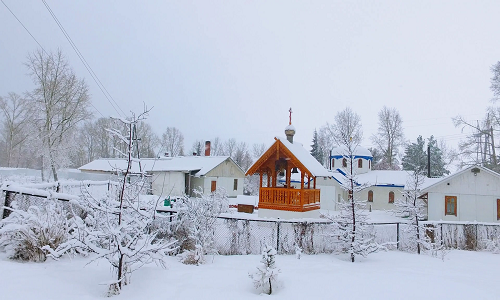
WINTER SEASON IN RUSSIA
The winter is cold in Russia. December is pretty mild in Moscow or in Saint-Petersburg, but if you plan to visit eastern Russia — you have to take some very warm clothes with you. January is freezing cold and February is the same most of the time. Russia in winter time is for snow-lovers. If you come in winter you can visit all the museums, theatres and places of interest, participate in the Russian national festivals and spend unforgettable time.
Starting from second half of december the streets in every city are decorated for New Year Celebration, for example Nevsky prospect in Saint-Petersburg is so beautiful at this time! Moreover, accommodation in winter is cheaper than in other seasons, so you can save some money.
Hotels in Russia offer a wide range of opportunities both for business and leisure travelers, comfortable rooms and irreproachable service.

